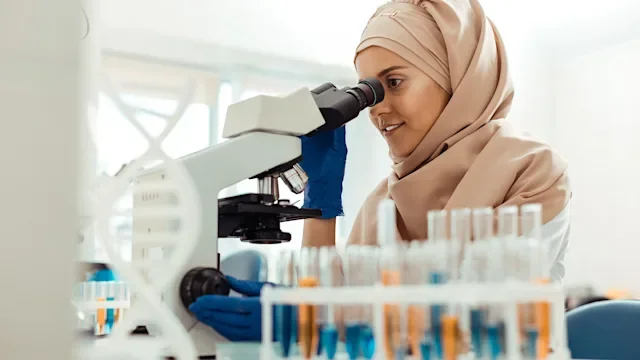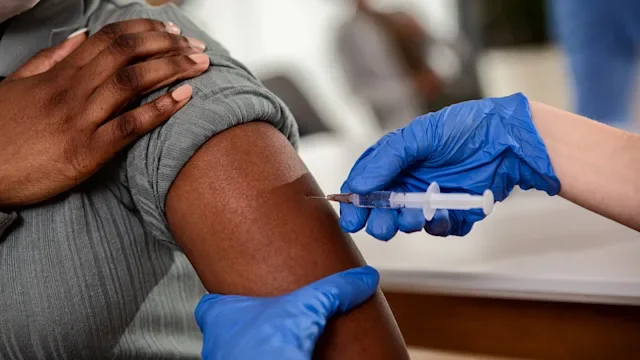Key takeaways:
Clostridioides difficile infection can happen soon after someone takes antibiotics. Symptoms of C. diff infection include diarrhea, abdominal cramps, and fever.
There are dangerous complications of C. diff colitis, and the infection can progress quickly. So it’s best to seek medical attention and treatment early.
C. diff infections are highly contagious. And hand sanitizers don’t kill the bacteria. You can help prevent the spread of infection by washing your hands with soap and water.
C. diff colitis is inflammation of the colon due to Clostridioides difficile bacteria. The C. diff bacteria exists naturally in the environment. When it’s outside of the body, the bacteria is dormant (inactive). But once C. diff enters the body, it can grow and cause an infection.
Many people think of bacteria as something that causes harm and always needs treatment. But you don’t need to worry about or treat all types of bacteria. There are useful bacteria that live in your colon to help with digestion. They work to keep in check bacteria — like C. diff — that cause infection. But when the useful bacteria disappear, C. diff bacteria can take over and cause infection. Without treatment, it can cause a more severe form of the infection and lead to C. diff colitis.
What are the symptoms of C. diff?
Symptoms of C. diff infection depend on how severe the infection is. The most common symptoms are:
Watery diarrhea
Abdominal cramps or pain
Fever
Fatigue
Elevated white blood count (WBC)
What causes a C. diff infection?
C. difficile infection is more common after antibiotic use. When you take antibiotics to get rid of a bacteria that causes an infection, you may also get rid of the useful bacteria in your colon. This leads to C. diff overgrowth and results in a C. diff infection. Infections can happen while you’re taking the antibiotic and up to 8 weeks after.
Who is at risk?
C. diff infection is common and can occur in anyone. It affects about 500,000 people in the U.S. each year. But there are some factors that can increase your risk for developing a C. diff infection. These risk factors include:
Antibiotic use
Close contact with another person with C. diff infection
Decreased immune system function (HIV or a history of organ transplant)
History of inflammatory bowel disease
Age 65 years old and up
Recent hospital or nursing home stay
How do you treat a C. diff infection?
The specific treatment for C. diff depends on if you have a mild infection or a more severe case.
For most mild infections, you can safely do the treatment at home. Treatment includes:
Stopping any antibiotics that may have caused the infection (your healthcare provider will let you know if it’s safe to do this)
Taking specific antibiotics by mouth (vancomycin, metronidazole, or fidaxomicin) for 10 to 14 days
Taking probiotic supplements to help reestablish the good bacteria in your colon — or eating foods rich in probiotics, such as yogurt
Read more like this
Explore these related articles, suggested for readers like you.
If your symptoms are severe, you may need to stay in the hospital for closer monitoring and treatment. You may receive intravenous (IV) antibiotics to treat the infection.
In recurrent or severe infections, you may need a fecal transplant. A fecal transplant puts stool from a healthy person inside the colon of a person with recurrent C. diff infection. This helps to restore normal bacteria in the colon.
In extreme situations, sometimes people need surgery that removes the colon or part of it. This helps to prevent widespread infection and illness.
How long does C. diff colitis usually last?
After beginning antibiotic treatment, most people recover within 1 to 2 weeks. It’s important to complete antibiotic treatment, as repeat infections can occur. Repeat infections typically happen soon after you stop the original treatment.
What are the most dangerous complications of C. diff colitis?
It’s important to seek medical care early in C. diff. The infection can progress quickly and lead to dangerous complications that can lead to death. Complications include:
Dehydration: Frequent episodes of diarrhea (up to 10 to 15 per day) can cause dehydration. It’s important to take in plenty of fluids during this time to stay hydrated.
Sepsis: Sepsis is a whole body reaction to infection. It’s a life-threatening medical emergency, and treatment aims to control the infection.
Kidney failure: Severe dehydration can cause the kidneys to stop working properly.
Respiratory failure: This is a common complication of sepsis. This is where the lungs can’t properly provide oxygen for the body.
Toxic megacolon: When the colon becomes very infected or inflamed, it can’t pass gas and stool. This leads to swelling of the colon and may need surgery to prevent further problems.
Colon rupture: If the colon swells too much, the colon wall can rupture. This causes fecal matter (or stool) and bacteria to leak into the belly. It’s a medical emergency that typically needs emergency surgery.
Is a C. diff infection contagious?
Yes, C. diff infection can be very contagious and easily spreads between people. The best way to avoid infection and prevent spread is to wash your hands with soap and water. You should wash your hands after every trip to the restroom and before you eat.
One challenge to stopping the spread is that hand sanitizers don’t kill C. diff bacteria. So if you have C. diff or are around someone with the infection, be sure to use soap and water instead of hand sanitizer.
Whenever possible, try to avoid contact with others who may have the infection. If you can't avoid contact, people with diarrhea should try to use a separate bathroom, if possible.
When treating C. diff in the hospital, healthcare providers wear a special gown and gloves. This helps to prevent the spread of the infection to other people.
The bottom line
C. diff infection most often happens after a person has recently taken antibiotics. The infection is highly contagious. And it can have serious complications if you don’t treat it. It’s important to take antibiotics as your healthcare provider recommends. If you develop symptoms such as diarrhea, belly pain, or fever — notify your provider right away. They will determine if your symptoms are due to a C. diff infection and work with you to establish a plan of action.

Why trust our experts?


References
American College of Gastroenterology. (2021). C. difficile infection.
Barreto, T. W., et al. (2018). Clostridium difficile infection: Prevention and treatment. American Family Physician.
Brandt, L. J. (2012). Fecal transplantation for the treatment of Clostridium difficile infection. Gastroenterology & Hepatology.
Centers for Disease Control and Prevention. (2021). C. diff (Clostridioides difficile).
Centers for Disease Control and Prevention. (2021). Prevent the spread of C. diff.
Jabbar, U., et al. (2010). Effectiveness of alcohol-based hand rubs for removal of Clostridium difficile spores from hands. Infection Control & Hospital Epidemiology.
Lessa, F. C., et al. (2015). Burden of Clostridium difficile infection in the United States. The New England Journal of Medicine.
MedlinePlus. (2022). C. diff infections.
Sartelli, M., et al. (2019). 2019 update of the WSES guidelines for management of Clostridioides (Clostridium) difficile infection in surgical patients. World Journal of Emergency Surgery.
Spigaglia, P. (2016). Recent advances in the understanding of antibiotic resistance in Clostridium difficile infection. Therapeutic Advances in Infectious Disease.

















